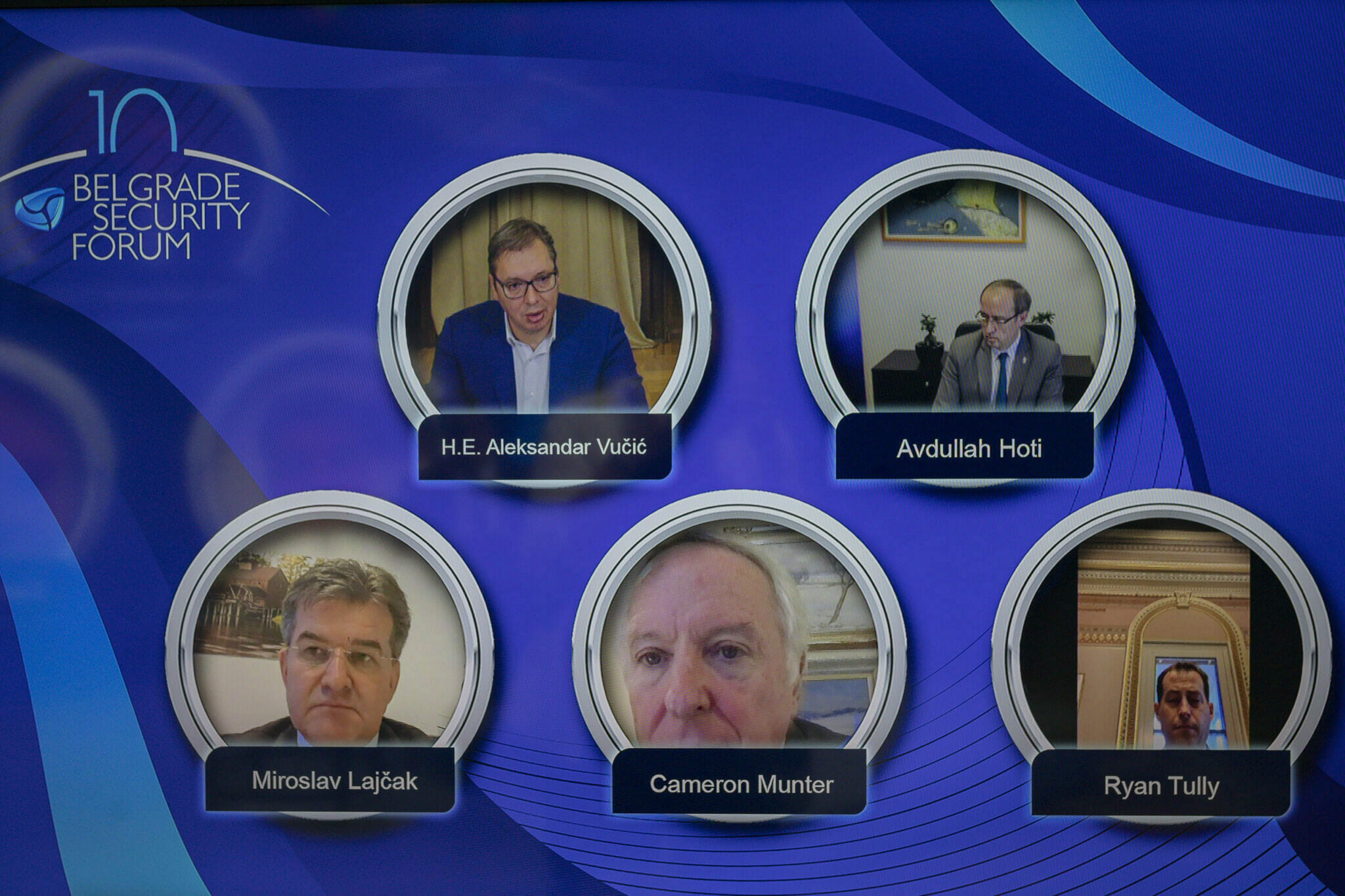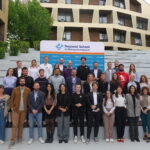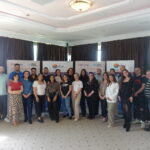The central part of the 10th Belgrade Security Forum, under title “No Trust – – No Peace”, continued on October 22nd, with focus on the special event “Belgrade-Pristina: No Trust, No Solution”.
The third day of the central part of the 10th edition of the Belgrade Security Forum began with a discussion on the challenges for the Western Balkans region and opportunities for co-operation and EU integration. European Commissioner for Neighbourhood and Enlargement, Olivér Várhelyi, opened yesterday’s discussion on the perspectives and approaches towards the region of the Western Balkans by stating that the region was a priority for the Commission and that it started working on the renew of cooperation since the day one in the Office.
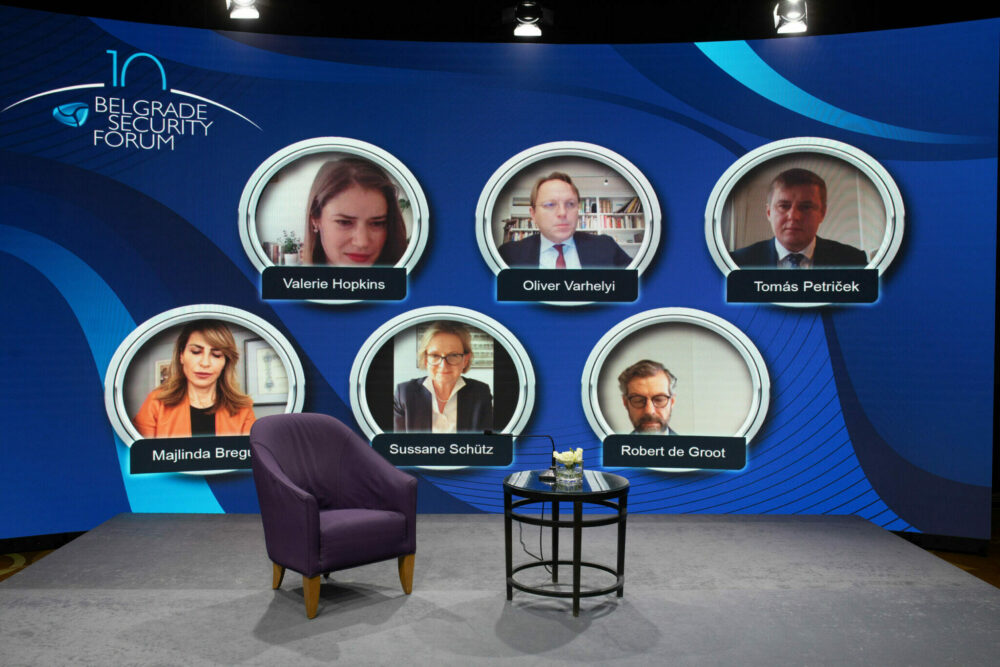
Czech Minister of Foreign Affairs Tomáš Petříček followed with his country’s position of great friendship with the region. He said that despite all current difficulties and differences he believed that the integration process would not slow down.
Susanne Schütz, from German Federal Foreign Office, had very clear message on this issue, stressing that she is very happy that Miroslav Lajčak was nominated as Special Envoy for the Belgade-Pristina dialogue, giving his enormous engagement in region.
Secretary General of the Regional Cooperation Council, Majlinda Bregu focused on new opportunities which emerged for regional cooperation, despite the Covid-19 pandemic. She said that same problems which existed before the pandemic, such as unemployment or slow economic growth, were still present in the region.
Permanent Representative of the Netherlands to the European Union, Robert de Groot, referred to the question about his country government showing big support for the region, but being on a hard line on enlargement so far.
The much anticipated Special Event of the “Balkans Dialogues Initiative: Belgrade-Pristina: No Trust, No Solution” showed us that the key of making Western Balkan region safe and in peace is the continuation of the Belgrade-Pristina dialogue and that real progress is yet to be made. Panel agreed that the continuation of the dialogue is of utmost importance, even though it seems that there was no common ground on its operation.
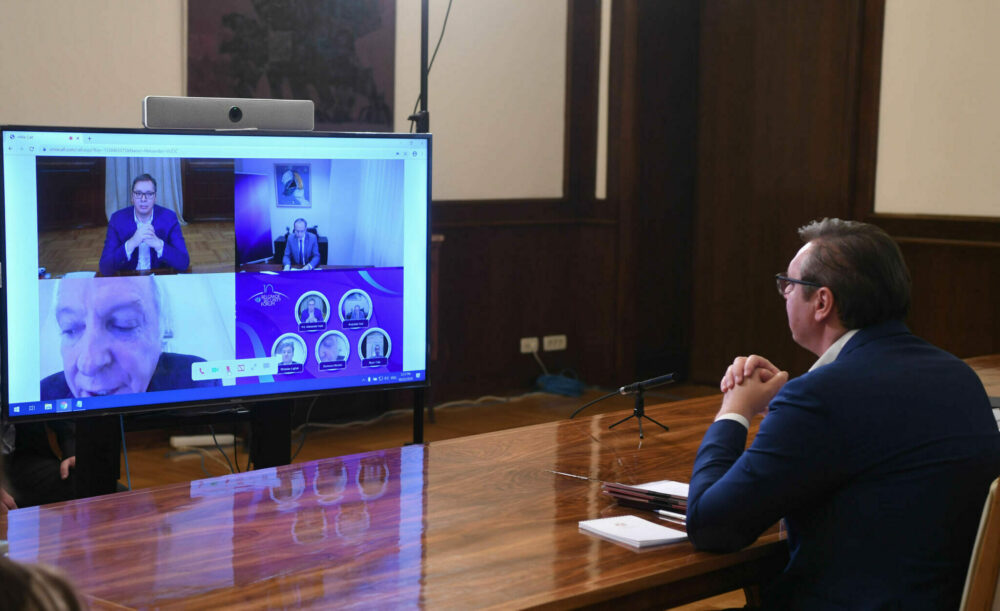
President Aleksandar Vučić, stated in his opening comment that the normalization between two sides is of most importance for keeping peace, stability and tranquility in the region, and that this needs to happen regardless of different opinions on both sides.
Avdullah Hoti agreed that the peace and security of the region is the most important for everyone and stated that Kosovo was ready to work together with other partners for this to happen.
Miroslav Lajčak pointed out that without trust there was indeed no peace in the region, and that both sides need to understand that there should be strong effort and hard work towards this.
Ryan Tully commented that United States of America are in the Western Balkan region and that they will do everything to help both sides in this dialogue. He stated that the USA and the President Trump administration helped creating the foundation for the economic stability between two countries that needs to be build upon.
Currently very important event for the international scene, the election for the President of the United States, was in focus of tonights session. Speakers agreed that these elections will influence multilateral relations and international cooperation through the NATO and the UN, as well as the World Health Organization.

Dr. Karen Donfried highlighted several problems that the United States administration must face, whether the current one or the new one. Among these problems, she cited the Coronavirus pandemic, economic recovery, climate change, the rise of China and the security.
Ivana Stradner commented on what could be expected from the Biden’s administration would he win the election. She thinks that one of the key changes will be the recovery of multilateralism and cooperation with international organizations.
Constantine Arvanitopoulos recalled America’s declining interest in Europe. Not all the guilt can be blamed on the Trump’s administration, but that the decline in cooperation with Europe and the failure to contain China and Russia have their roots in the Obama’s and Biden’s administration. He believes that certain policies, such as relations with Europe, will not be a significantly changed with the eventual coming of Biden to power.
In the last decades, the world has seen an unprecedented rise in populist parties. In this session, Cas Mudde discussed the main features of populism, what makes it so unique, the effects of the upcoming US elections, and the way out of the era of Populist Zeitgeist.
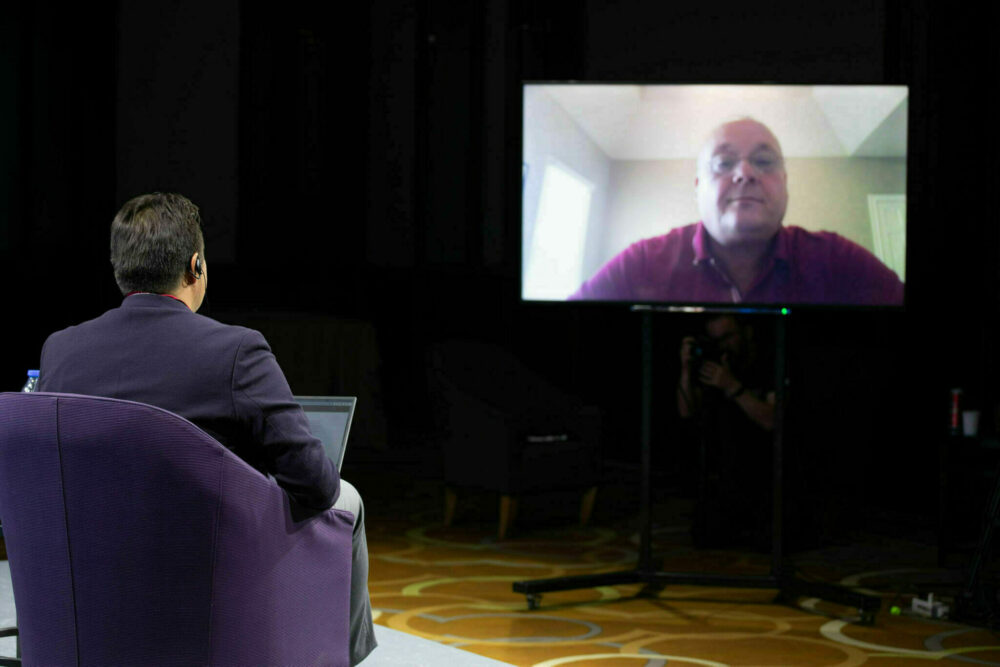
The Belgrade Security Forum continues on October 27, when “the curtain will be officially brought down” on the 10th, in many ways specific edition of the Belgrade Security Forum.


